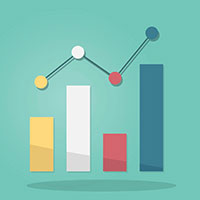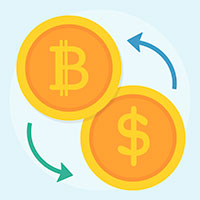Bearish market is a phenomenon where prices in the stock market show a general decline over a period of time. It takes place when a 20 percent drop or greater, from their 52-week high, occurs. Along this decline, pessimism among investors also escalate, thus increasing the sale of shares.
This market trend is associated with a “bear” because of the animal’s manner of attacking its victims. A bear swipes its paws downward to slay its prey. While its opposite is termed “bull” because bulls thrust their horns up into the air in slaughtering its food.
On an average, a bearish market lasts for 97 months before recovering. If it lasts for less than two, it is considered to only be a correction. Thankfully, the last recorded bear in the world market was six years ago, ending in March 2009.
Dow Jones Industrial Average (DJIA), S&P 500 and the NASDAQ defines whether a market is at its bear or bull trend. But aside from the stock market, it also occurs in currencies, gold and some commodities such as oil.
What happens when a market hits “bear”?
- Major indices continue to fall. A bearish market can be kindled by a stock market crash, where prices hit around 10 percent drop in 24 hours. As the figures then continue to hit new lows and show highs lower than before, the bear is considered present.
- Recession commonly follows. This happens when the economy stops developing and then contracts. Recession causes high unemployment rates, consumer spending restraint and corporate profit decline.
- Consumer confidence dips. American buyers as an example, amount roughly to two-thirds of the US economic activity. This means once consumers are not spending as much as they used to, the market is not doing well.
- Investor pessimism. As stock index figures start to decline over a period of time, investors start to move their money out of equities and into fixed income securities. This decrease in stock demand will then add to the negative performance of the market.
- Weak economy. There is a strong link between the stock market and the economy. In a bearish market, a lot of businesses are affected by the decrease in consumer spending and the sales of company shares.
 In today’s fast-paced financial world, responsible trading is no longer a choice; it's a necessity. Technology has opened the markets to everyone, making access incredibly easy.
In today’s fast-paced financial world, responsible trading is no longer a choice; it's a necessity. Technology has opened the markets to everyone, making access incredibly easy. For active traders and investors, mastering the art of trading volatility is a crucial skill. Volatility, in financial terms, refers to the extent to which asset prices fluctuate over time. High volatility markets experience rapid price swings...
For active traders and investors, mastering the art of trading volatility is a crucial skill. Volatility, in financial terms, refers to the extent to which asset prices fluctuate over time. High volatility markets experience rapid price swings... The global financial market operates as a dynamic ecosystem, where understanding the connections between different market movements can provide invaluable insights for forecasting...
The global financial market operates as a dynamic ecosystem, where understanding the connections between different market movements can provide invaluable insights for forecasting... The forex market, also known as the foreign exchange market, stands as the largest and most traded financial market globally. FXTM is committed to equipping our clients...
The forex market, also known as the foreign exchange market, stands as the largest and most traded financial market globally. FXTM is committed to equipping our clients... Cryptocurrency trading has rapidly grown into a bustling and dynamic market that attracts traders from around the world. With the potential for significant profits...
Cryptocurrency trading has rapidly grown into a bustling and dynamic market that attracts traders from around the world. With the potential for significant profits...